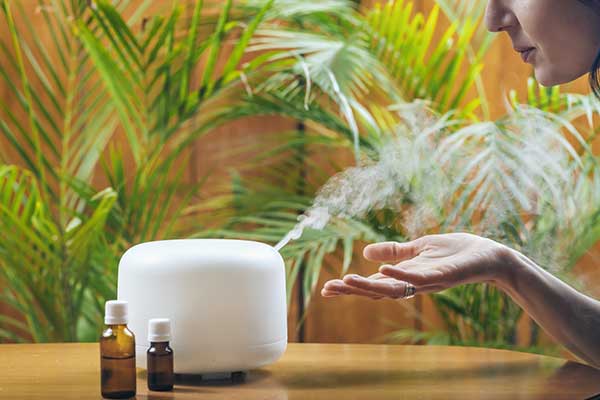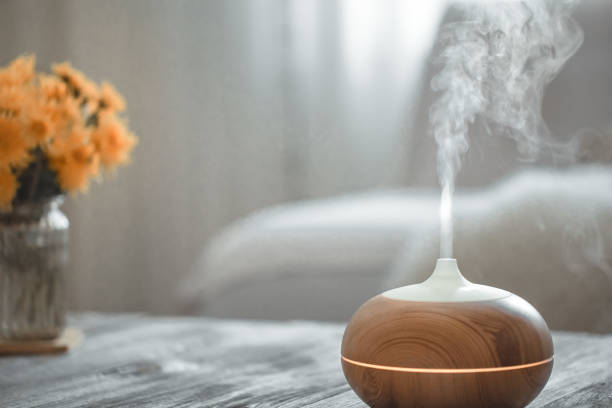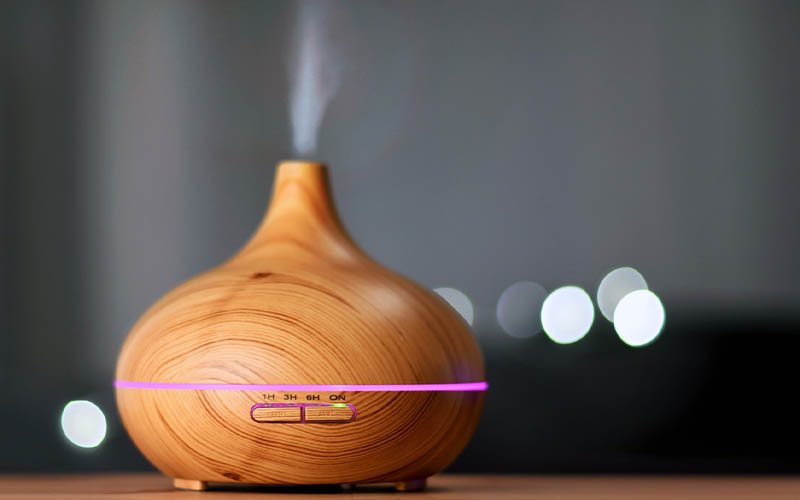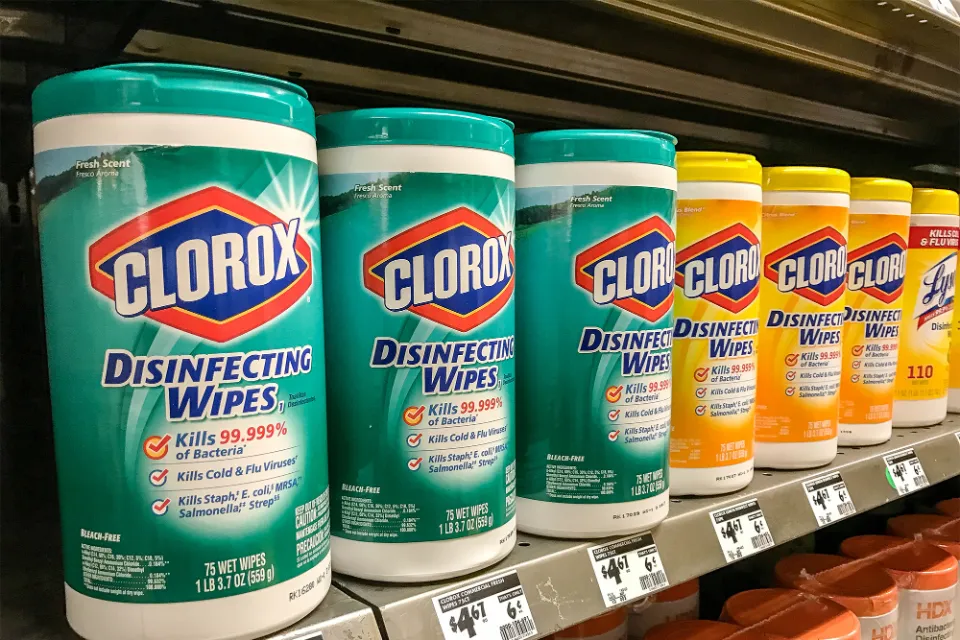Home humidifiers come in tabletop, portable console, and whole-home systems that connect to the ductwork for forced air. But, how often you should clean your humidifier? The type and frequency of use will determine the answer.
Many people might be surprised to learn that cleaning your humidifier at least once every three days or once a week is the best way to prolong the life of your humidifier and keep yourself healthy. To completely get rid of the possibility of mold, rinse the top tank first, and then dry the base thoroughly.
Filter Replacement Or Cleaning
Warm moist air, cool moist air, and ultrasonic humidifiers (i.e. console and tabletop) use different types of filters depending on the model. A disposable media pad or a permanent mesh filter is typically included in whole-home humidifiers.
- Replaceable wick filters, which are used in most evaporative cool moisture humidifiers and should be changed about every two months, are typical.
- A mineral absorption pad, which needs to be replaced every two to three weeks, may be used in warm moisture humidifiers.
- Demineralization cartridges are found in ultrasonic humidifiers, and they should be replaced in accordance with the instructions from the manufacturer.
- At the conclusion of the heating month, whole-home humidifier disposable media pads should be thrown away, and a new one should be installed at the start of the following heating season.
- Use vinegar or humidifier cleaning solution to clean permanent mesh filters.

Why Do You Have to Clean the Humidifier Regularly?
Without a doubt, the filters of humidifiers and water tanks or reservoirs are two locations where mold and bacteria are most likely to grow if they are not kept clean. For instance, it is necessary to follow the manufacturer’s instructions and replace the filters as needed in order to keep them clean. However, if we are aware that it has already become dirty, it is best to do it more frequently, like every two weeks. To remove mineral deposits, it will need to be disassembled, thoroughly washed in lots of water, and dried before being reassembled.
The humidifier’s water must be distilled or demineralized, and this is crucial. We will be able to keep the equipment cleaner for a longer period of time and it will function properly as a result. The ideal would be to clean the water reservoir (or tank) every two weeks, just as we did with the filters, though in this case, it will depend greatly on the water quality.
To properly access the entire space, the appliance’s tank must be taken out of the way. Detergents won’t be used; instead, water and a cleaning agent will be used to clean this. Additionally, if it has grounds, it will be rubbed with a brush with extremely soft bristles after being submerged in water for about 20 minutes with a cleaner or a little vinegar. Then, it must be taken out of the humidifier and filled with ice water before being put back.
In relation to the equipment’s storage, it is important to understand that if the equipment won’t be used for at least a while, it must be completely disconnected before being properly cleaned with a damp cloth. After cleaning it as usual, wipe it down with a cloth to dry it. Finally, we should think about replacing old humidifiers. In particular, we should replace any humidifiers that do not have easy access to the tank, as this prevents the tank from turning into a secure location for microorganism storage.
The humidifier may be more or less necessary depending on where we live and the time of year we’re in. This must be kept in mind once we’ve established how frequently we should clean the humidifier. The air’s humidity, for instance, drops significantly during the summer and winter seasons. The issue is that those who are most susceptible to these changes frequently develop allergies or breathing problems at dusk. Many people use humidifiers as a coping mechanism for this.

Is It Really Suitable to Use It at Night in the Room?
The fact is that, despite taking some precautions, it seems to be highly recommended to have a humidifier in the room while awake and while sleeping. However, it will be especially so in cases like these:
– Snoring: The moist air it emits keeps the nose and throat from drying out and clears the nostrils, lessening the frequency and severity of snoring.
– Nasal dryness can cause breathing problems, which humidification can help to prevent.
– In the event that we frequently experience nasal congestion, adding moisture to the air will help us breathe better because when the air is too dry, the paranasal sinuses cannot function properly.
– Keeps our nostrils lubricated, which speeds up the healing process when we have a cold, asthma attack, or allergy. Additionally, it helps to purify the air we breathe, which helps us cope with discomfort brought on, for example, by allergies.
– Hydration of the body: The next day, we’ll notice that our skin is much smoother and more hydrated thanks to the humidifier (especially if we leave it on all night).
– Lower risk of infections: This is primarily due to the fact that humidity inhibits the ease with which bacteria and other microorganisms can spread.
– Voice: Despite the fact that it may sound absurd, many people assert that using the humidifier while sleeping results in a much softer voice when they awaken. This device stops dry air from entering the vocal cords.
Read about Air Purifier Vs Humidifier
Let’s Clean Your Humidifier
It’s crucial to ensure that your humidifier is cleaned frequently if you have one. Your humidifier should ideally be cleaned once a week or at least every three days.
Here are some cleaning suggestions for your humidifier: After using the humidifier, shut off the water valve at the bottom of the device. By doing this, water won’t be allowed to escape from the filter or evaporator. Remove the filter, then wash it in warm water mixed with a light detergent solution. Before replacing in the device, give it a thorough rinse and let it dry completely. Only fill your humidifier with clean water when you’re ready to use it again.
FAQs
Can You Get Sick from a Humidifier?
Humidifiers can help make the air more humid, which is easier on the throat and nose, but if you don’t clean it properly, they can also make you sick, causing asthma attacks, coughs, respiratory infections, and lung issues.
Is a Humidifier Good for Flu?
Your condition could worsen and you could feel congested due to dry air, which can cause throat and nose irritation. By maintaining a humid and moderately warm throat, a humidifier can help reduce coughing.
Can a Humidifier Hurt My Lungs?
You may experience health problems if your humidifier is dirty.
Can Humidifiers Spread Mold?
Not only can mold and fungi grow if the humidifier isn’t regularly drained, but the humidifier will also encourage growth by dispersing spores of mold and fungi with the mist. Once a week or as soon as a bad smell is noticed, you should clean the humidifier.



